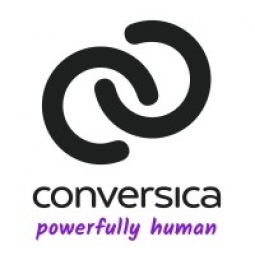Technology Category
- Infrastructure as a Service (IaaS) - Virtual Private Cloud
- Wearables - Virtual Reality Glasses, Headsets & Controllers
Applicable Industries
- Automotive
- Healthcare & Hospitals
Applicable Functions
- Sales & Marketing
Use Cases
- Chatbots
- Intelligent Packaging
Services
- Testing & Certification
About The Customer
IHS Markit is a leading information services firm with a valuation of $5 billion. The company operates in several key markets, including financial services, automotive, and energy, and has approximately 16,000 employees and 150 offices worldwide. IHS Markit is dedicated to helping its customers make better and more informed decisions by leveraging its products and services. The company prides itself on the quality of its data and its team of 600 analysts who work together to synthesize information and guide customers towards the best possible outcomes. IHS Markit's work often garners media attention, generating significant interest in their information services and driving organic traffic to their website.
The Challenge
IHS Markit, a $5-billion information services firm, faced a significant challenge in managing the high volume of inquiries generated by its extensive marketing efforts and media exposure. The company, which operates in key markets such as financial services, automotive, and energy, struggled to identify and elevate leads fitting its ideal customer profiles or those ready for sales engagement. The challenge was not just the volume of inquiries but also the capacity of the sales team to follow up with potential leads. The company needed a solution that could help them manage this high lead volume without adding to the headcount, while also improving customer retention and expansion.
The Solution
IHS Markit adopted Conversica's Intelligent Virtual Assistants (IVAs) to manage the high volume of inquiries and identify sales-ready leads. The IVAs, which are AI-powered, SaaS-based software applications, serve as virtual team members and autonomously engage contacts in human-like, two-way interactions at scale. They go beyond traditional lead scoring by directly asking contacts about their interest, providing current interest directly from leads alongside current and best contact information, and their desired time to connect. IHS Markit uses its AI Assistants for Conversational Marketing to engage new prospects, while its AI Assistant for Conversational Customer Success drives customer health and helps expand current relationships via upselling and cross-selling opportunities. The company is also considering hiring an additional IVA to assist in collecting payment via polite and personalized communications at scale.
Operational Impact
Quantitative Benefit

Case Study missing?
Start adding your own!
Register with your work email and create a new case study profile for your business.
Related Case Studies.

Case Study
Integral Plant Maintenance
Mercedes-Benz and his partner GAZ chose Siemens to be its maintenance partner at a new engine plant in Yaroslavl, Russia. The new plant offers a capacity to manufacture diesel engines for the Russian market, for locally produced Sprinter Classic. In addition to engines for the local market, the Yaroslavl plant will also produce spare parts. Mercedes-Benz Russia and his partner needed a service partner in order to ensure the operation of these lines in a maintenance partnership arrangement. The challenges included coordinating the entire maintenance management operation, in particular inspections, corrective and predictive maintenance activities, and the optimizing spare parts management. Siemens developed a customized maintenance solution that includes all electronic and mechanical maintenance activities (Integral Plant Maintenance).

Case Study
Hospital Inventory Management
The hospital supply chain team is responsible for ensuring that the right medical supplies are readily available to clinicians when and where needed, and to do so in the most efficient manner possible. However, many of the systems and processes in use at the cancer center for supply chain management were not best suited to support these goals. Barcoding technology, a commonly used method for inventory management of medical supplies, is labor intensive, time consuming, does not provide real-time visibility into inventory levels and can be prone to error. Consequently, the lack of accurate and real-time visibility into inventory levels across multiple supply rooms in multiple hospital facilities creates additional inefficiency in the system causing over-ordering, hoarding, and wasted supplies. Other sources of waste and cost were also identified as candidates for improvement. Existing systems and processes did not provide adequate security for high-cost inventory within the hospital, which was another driver of cost. A lack of visibility into expiration dates for supplies resulted in supplies being wasted due to past expiry dates. Storage of supplies was also a key consideration given the location of the cancer center’s facilities in a dense urban setting, where space is always at a premium. In order to address the challenges outlined above, the hospital sought a solution that would provide real-time inventory information with high levels of accuracy, reduce the level of manual effort required and enable data driven decision making to ensure that the right supplies were readily available to clinicians in the right location at the right time.











